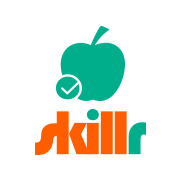Description

Study Island

Wizcabin
Comprehensive Overview: Study Island vs Wizcabin
Certainly! Let's delve into an overview of Study Island and Wizcabin, focusing on their primary functions, target markets, market share, user base, and differentiating factors.
Study Island
a) Primary Functions and Target Markets
Study Island is an educational platform designed primarily for K-12 students, offering standards-based lessons and practice in a wide range of subjects. The platform covers core areas such as math, reading, science, and social studies, aligning closely with state standards to help students prepare for standardized assessments.
Target Market:
- K-12 students, teachers, and schools
- School districts in the United States
b) Market Share and User Base
Study Island has been widely adopted across numerous school districts in the United States, capitalizing on its alignment with state standards and its reputation for effective test preparation. Its market share is significant within the K-12 domain, though specific data may vary based on region and educational policy changes. The platform boasts a broad user base, with thousands of schools utilizing its services.
c) Key Differentiating Factors
- Standards Alignment: Strong emphasis on alignment with state standards, making it particularly useful for schools focused on state-specific assessments.
- Variety of Subjects: Coverage of multiple subjects allows for comprehensive academic support.
- Data Analytics: Offers robust reporting tools for teachers to track student progress and identify areas in need of improvement.
- Gamification: Incorporates gamified elements to engage students, making learning more interactive and enjoyable.
Wizcabin
a) Primary Functions and Target Markets
Wizcabin is an eLearning authoring tool designed to streamline the process of creating interactive online courses. It allows users to convert static content like PowerPoint presentations into engaging eLearning modules with multimedia elements and interactive features, suitable for various learning contexts.
Target Market:
- Corporate training departments
- Instructional designers and course creators
- Educators looking to develop online courses
b) Market Share and User Base
Wizcabin serves a niche market primarily within corporate training and instructional design, unlike Study Island which targets the K-12 education sector. Its market share is smaller but significant within the eLearning authoring tool domain, with growing adoption among businesses and educational institutions aiming to digitize their training and learning materials. The user base is diverse, ranging from corporate trainers to freelance instructional designers.
c) Key Differentiating Factors
- Simplicity and Speed: Focus on an easy-to-use interface, allowing users to rapidly develop courses without needing extensive technical expertise.
- Content Conversion: Unique capability to convert existing materials into interactive, multimedia-rich eLearning modules.
- Responsive Design: Ensures that courses are compatible across various devices and platforms, enhancing accessibility.
- Customization Options: Flexibility in design and content delivery, catering to different audience needs and learning styles.
Comparative Analysis
- Target Audience: Study Island is tailored for K-12 education, focusing on student learning and teacher support, whereas Wizcabin is designed for corporate training and professional development in eLearning environments.
- Functionality: Study Island is primarily an educational tool for practice and assessments, while Wizcabin is an authoring tool for creating eLearning content.
- User Experience: Study Island incorporates gamification to engage learners, whereas Wizcabin emphasizes ease of content creation and interactivity.
- Market Influence: Study Island has a more significant presence in K-12 education within the U.S., whereas Wizcabin targets a specialized segment in eLearning and corporate training.
Overall, while Study Island and Wizcabin both contribute to educational technology, they cater to different needs and audiences, with distinct functionalities that align with their respective markets.
Contact Info

Year founded :
2000
Not Available
Not Available
Not Available
http://www.linkedin.com/company/study-island

Year founded :
2016
+44 772 114 8329
Not Available
United Kingdom
http://www.linkedin.com/company/wizcabin
Feature Similarity Breakdown: Study Island, Wizcabin
As of my knowledge cutoff date in October 2023, Study Island and Wizcabin are two distinct educational platforms, each offering various features mainly designed for educational purposes, though they cater to different aspects of learning and education. Here's a breakdown of how they compare:
a) Core Features in Common
-
Online Learning Platform: Both Study Island and Wizcabin provide online access to their services, allowing students and educators to access materials from anywhere.
-
Assessment Tools: They offer tools that measure student learning and progress. Study Island emphasizes its standardized test preparation, while Wizcabin focuses on assessing learning through eLearning courses.
-
Content Creation and Customization: Both platforms allow some degree of customization, where educators or course creators can tailor content based on learner needs or specific learning outcomes.
-
Data and Analytics: Each provides data analytics features that help educators track progress and tailor instruction to meet individual or group learning needs.
b) User Interface Comparison
-
Study Island: Typically features a straightforward, utility-focused interface designed primarily for teachers and students in K-12 settings. It aims to simplify navigation through various activities, assessments, and progress tracking tools. The design focuses on functionality to support classroom instruction and standardized test preparation.
-
Wizcabin: Offers a more modern and intuitive interface tailored often towards course creators rather than direct student use. The design emphasizes ease of use for creating interactive eLearning content, with drag-and-drop functionalities and templates to streamline the process.
c) Unique Features
-
Study Island:
- Standards Alignment: Specifically aligns with individual state standards in the U.S., providing practice in line with standardized assessments.
- Game-Based Learning: Incorporates games to make learning more engaging for students.
- Classroom Integration Tools: Offers tools specifically designed to support classroom learning environments and teacher-led instruction.
-
Wizcabin:
- Responsive eLearning Authoring: Specializes in creating SCORM-compliant eLearning courses automatically responsive on all devices, tailored to corporate and adult learning sectors.
- AI-Powered Content Automation: Utilizes AI to convert existing documents into interactive eLearning courses, significantly reducing the time required for content creation.
- Interactive Elements: Offers features that allow the embedding of quizzes, videos, and other multimedia elements to enhance the eLearning experience.
In summary, while both platforms serve educational purposes, Study Island is more student-focused with a primary strength in standardized test prep and classroom support, whereas Wizcabin excels as an authoring tool, more suited for creators of corporate training modules and interactive eLearning content.
Features

Engaging Practice Tools
Flexible Instructional Support
Comprehensive Reporting
Customizable Learning Paths

Easy Course Creation
User Management
Integration Capabilities
Interactive Learning Experience
Best Fit Use Cases: Study Island, Wizcabin
Study Island
a) Best Fit Use Cases:
-
K-12 Education:
- Primary and Secondary Schools: Study Island is specifically designed for K-12 education, providing standards-based practice and test preparation.
- District-wide Implementations: Useful for school districts looking to implement a uniform platform for all schools to ensure consistency in learning materials and assessments.
-
Teachers and Educators:
- Test Preparation and Standards Mastery: Offers resources for teachers to help students master state-specific standards and prepare for assessments.
- Data-Driven Instruction: Provides analytics and reporting tools that educators can use to tailor instruction and track student progress.
-
Supplemental Education Providers:
- Tutoring Centers: Supplementary education providers can use Study Island to offer additional support and practice for students needing extra help.
-
Remote Learning Solutions:
- Online Education: Can be an integral part of an online schooling curriculum by providing interactive content that students can engage with remotely.
Industry Verticals and Company Sizes:
- Education Sector: Primarily caters to educational institutions including traditional schools, online schools, and educational service providers.
- Small to Medium Educational Organizations: Ideal for smaller districts or individual schools looking for a cost-effective and scalable solution to enhance their curriculum.
Wizcabin
b) Preferred Use Cases:
-
Corporate Training and E-Learning:
- HR and Training Departments: Wizcabin is ideal for companies looking to convert their training materials into interactive e-learning courses quickly and efficiently.
- Compliance and Skills Training: Effective for industries that require regular compliance training or skills development courses.
-
Content Developers and Designers:
- Instructional Designers: Offers tools that allow designers to create SCORM-compliant e-learning modules that are engaging and interactive.
-
Consulting and Professional Services:
- Training Consultants: Can use Wizcabin to develop customized training solutions for their clients across various industries.
-
Small to Medium Enterprises (SMEs):
- Scalable Solutions: Allows smaller businesses to develop employee training programs without needing extensive resources or technical expertise.
Industry Verticals and Company Sizes:
- Corporate and Professional Training: Primarily caters to corporate sectors needing to streamline their training processes and create consistent learning experiences.
- SMEs to Large Enterprises: Can be used by companies of different sizes due to its scalable nature and ability to integrate with existing learning management systems (LMS).
In summary, Study Island is best suited for K-12 educational environments focused on standards-based instruction and test preparation, whereas Wizcabin is ideal for corporate training and professional development, offering tools for creating interactive and engaging e-learning content. Both cater to different industry needs, with Study Island focusing on educational institutions and Wizcabin serving the corporate training sector.
Pricing

Pricing Not Available

Pricing Not Available
Metrics History
Metrics History
Comparing teamSize across companies
Conclusion & Final Verdict: Study Island vs Wizcabin
When conducting a comparative analysis between Study Island and Wizcabin, it's important to evaluate various factors such as functionality, usability, cost-effectiveness, target audience, and specific educational needs.
Conclusion and Final Verdict
a) Considering all factors, which product offers the best overall value?
The best overall value depends largely on the user's specific needs. Study Island provides a more comprehensive platform focused on standardized test preparation, practice, and assessment tailored towards K-12 students. In contrast, Wizcabin offers powerful e-learning content creation tools, which are more valuable for organizations or educators looking to create engaging and interactive digital courses quickly.
If the primary need is for a structured educational tool for K-12 students to improve test scores and align with educational standards, Study Island offers the best value. However, if the need is centered around creating custom e-learning content quickly, especially for corporate training or varied educational purposes, Wizcabin is more suitable.
b) What are the pros and cons of choosing each of these products?
Study Island:
-
Pros:
- Aligned with state standards, making it a valuable tool for standardized test preparation.
- Offers differentiated instruction and tailored content for various student levels.
- Provides actionable insights through detailed analytics for teachers.
- Extensive practice resources across different subjects.
-
Cons:
- Primarily focused on K-12, which may limit its applicability beyond this demographic.
- May not suit organizations looking for content creation tools or non-standardized educational content.
Wizcabin:
-
Pros:
- Allows rapid development of interactive e-learning courses.
- Suitable for a variety of sectors, including corporate training.
- User-friendly interface with features to enhance learner engagement.
- Offers analytics to measure course effectiveness.
-
Cons:
- Focused primarily on content creation rather than delivering pre-made educational assessments or practice content.
- May not align with specific educational standards without customization.
c) Are there any specific recommendations for users trying to decide between Study Island vs Wizcabin?
-
Identify Your Needs: Define whether the primary goal is standardized testing preparation and assessment (Study Island) or rapid development of engaging e-learning content (Wizcabin).
-
Consider Your Audience: For K-12 educational settings, Study Island provides the necessary alignment with educational standards and differentiated methods to cater to various student levels. For broader audiences or workplace training requiring custom course creation, Wizcabin is more appropriate.
-
Budget Constraints: Compare pricing structures against your budget. Consider any scalability needs if you're an organization that might expand usage.
-
Trial Periods: Leverage any available free trials or demos. This helps in assessing usability and determining which platform better suits your workflow or instructional goals.
-
Feedback: Reach out to current users or check detailed reviews to gather insights into specific use cases similar to your own. This peer input can be valuable in making a decision.
In conclusion, the choice between Study Island and Wizcabin should be guided by your specific educational objectives, target audience, and operational needs. Both platforms excel within their niches, offering valuable resources for educators and organizations.
Add to compare
Add similar companies




